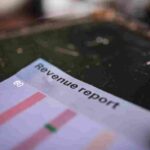7 Habits That Help You Achieve Financial Freedom. Achieving financial freedom is a goal that many of us strive for. But how exactly can we make it happen? In this article, we will explore seven key habits that can help you pave your way to financial independence. From budgeting and saving to investing wisely, these habits are designed to empower you with the knowledge and skills needed to take control of your finances and build a secure future.
Whether you’re just starting out on your financial journey or looking for ways to enhance your existing strategies, these seven habits will provide valuable insights and actionable steps toward achieving the ultimate goal of financial freedom. So let’s dive in and discover the secrets behind these life-changing habits!
Habit 1: Set Clear Financial Goals
To achieve financial freedom, it is crucial to start by setting clear and achievable financial goals. Having well-defined objectives will help you stay focused and motivated on your journey toward financial independence. Here are some key points to consider when setting your financial goals:
- Be specific: Clearly define what you want to achieve financially. Instead of saying “I want to save more money,” specify the exact amount or percentage you aim to save.
- Set measurable targets: Make sure your goals are quantifiable so that you can track your progress over time. For example, instead of stating “I want to reduce debt,” set a goal like “I will pay off $10,000 in credit card debt within one year.”
- Establish deadlines: Setting deadlines creates a sense of urgency and helps prioritize actions accordingly. Determine realistic timelines for achieving each goal, whether it’s short-term (within a few months) or long-term (a few years).
- Prioritize goals: Identify which goals are most important to you and focus on them first. Start with smaller, attainable objectives before tackling larger ones.
- Break it down: Divide big goals into smaller milestones or sub-goals that are easier to accomplish incrementally.
- Write it down: Documenting your financial goals makes them tangible and enhances commitment levels.
- Review regularly: Regularly assess the progress made towards achieving your financial aspirations; re-evaluate if necessary and make adjustments along the way.
Remember that setting clear financial goals is just the beginning; taking consistent action is equally important in realizing them successfully.
Habit 2: Create a Budget and Stick to It
Creating a budget is essential for achieving financial freedom. It helps you track your income, expenses, and savings goals. Here are some steps to create a budget and tips on how to stick to it:
- Calculate Your Income: Start by determining your total monthly income from all sources.
- List Your Expenses: Make a comprehensive list of all your expenses, including fixed costs like rent or mortgage payments, utilities, insurance premiums, and variable expenses such as groceries, transportation costs, entertainment, etc.
- Differentiate between Needs and Wants: Categorize your expenses into needs (essential) and wants (non-essential). Prioritize needs over wants when allocating funds in your budget.
- Set Realistic Goals: Identify short-term and long-term financial goals – paying off debt, saving for emergencies or retirement – then allocate funds accordingly within your budget.
- Track Spending Habits: Monitor every expense you make each month using spreadsheets or personal finance apps that can help you visualize where your money goes.
- Establish Budget Categories: Group similar expenses together under specific categories like housing, transportation, food & dining out; this will give you better clarity on where most of the money is being spent.
| Category | Monthly Allocation |
|---|---|
| Housing | $800 |
| Transportation | $200 |
| Food | $400 |
- Review Regularly: Evaluate how well you’re sticking to your budget regularly—this will help identify areas for improvement or adjustments needed in spending habits.
- Use Cash Envelopes: Allocate cash amounts for different categories (e.g., groceries) ahead of time using envelopes; once the cash runs out in that category’s envelope during the month—stop spending until next month!
Remember that creating a budget is just one part of the equation. Sticking to it is equally important. It requires discipline, commitment, and occasional adjustments as circumstances change. By monitoring your spending habits and making conscious financial decisions, you can stay on track toward achieving financial freedom!
Habit 3: Save and Invest Wisely
To achieve financial freedom, it is crucial to develop the habit of saving and investing wisely. Here are some key strategies that can help you make the most of your money:
- Create a budget: Start by tracking your income and expenses to get a clear picture of where your money is going. This will allow you to identify areas where you can cut back on spending and allocate more towards savings.
- Set financial goals: Define short-term and long-term financial goals that align with your aspirations. Whether it’s saving for a down payment on a house or planning for retirement, having specific targets in mind will keep you motivated to save consistently.
- Pay yourself first: Treat savings as an essential expense by prioritizing it over discretionary spending. Set up automatic transfers from your paycheck or checking account into a separate savings or investment account before allocating funds for other expenses.
- Build an emergency fund: Life is full of unexpected surprises, so having an emergency fund is vital for financial security. Aim to save at least three to six months’ worth of living expenses in an easily accessible account.
- Diversify investments: Spread out your investment portfolio across different asset classes such as stocks, bonds, real estate, and mutual funds to minimize risk and maximize potential returns over time.
- Stay informed: Keep yourself updated about personal finance topics by reading books, and following reputable blogs or podcasts related to investing, budgeting, and wealth management. The more knowledge you have about managing money wisely, the better decisions you’ll make regarding investments.
- Review and adjust periodically: Regularly review your saving and investment strategy based on changes in your life circumstances or market conditions so that you can stay on track toward achieving your financial goals effectively.
By incorporating these habits into your daily routine consistently over time, you’ll be well-equipped with the tools necessary to secure your financial future.
Habit 4: Minimize Debt and Manage Credit Responsibly
To achieve financial freedom, it is crucial to minimize debt and manage credit responsibly. Here are some habits that can help you in this regard:
- Create a Budget: Start by creating a monthly budget to track your income and expenses. This will give you a clear picture of where your money is going and allow you to identify areas where you can cut back on spending.
- Pay Off High-Interest Debt First: Prioritize paying off high-interest debts such as credit card balances or personal loans. By focusing on these debts first, you’ll save money in the long run by reducing the amount of interest paid.
- Avoid Impulse Buying: Before making any purchase, especially big-ticket items, take time to evaluate whether it’s a need or a want. Avoid impulsive buying decisions that may lead to unnecessary debt accumulation.
- Use Cash Whenever Possible: Instead of relying solely on credit cards for purchases, try using cash or debit cards whenever possible. This helps prevent overspending and keeps your overall debt level low.
- Make Payments on Time: Late payments not only incur fees but also negatively impact your credit score over time. Set up reminders or automatic payments to ensure bills are paid promptly each month.
- Monitor Your Credit Score Regularly: Stay updated with your credit score by regularly checking your report from major credit bureaus like Equifax, Experian, or TransUnion. Monitoring your score allows you to catch any errors early on and make improvements if needed.
- Clearance Sales / Bankruptcy Auctions: Take advantage of clearance sales or bankruptcy auctions for discounted prices on various goods & services – be cautious though!
Remember that minimizing debt takes time and discipline; however, it is an essential step towards achieving financial freedom.
Habit 5: Increase Your Income with Multiple Streams of Revenue
To achieve financial freedom, it’s important to increase your income. One effective strategy is to develop multiple streams of revenue. Here are seven ways you can diversify and boost your earnings:
- Start a Side Business: Consider turning your passion or hobby into a profitable venture. Whether it’s crafting, baking, writing, or consulting, a side business can generate extra income while allowing you to pursue something you enjoy.
- Invest in Stocks: Investing in stocks allows you to earn dividends and potentially benefit from capital appreciation over time. Research different companies and sectors before making informed investment decisions.
- Rental Properties: Purchasing rental properties can provide steady cash flow through monthly rental payments. However, be sure to assess the market demand and carefully manage tenants and property maintenance.
- Create an Online Course: If you have expertise in a specific area, create an online course that others can purchase for self-improvement or professional development purposes. Platforms like Udemy make it easy to share your knowledge and monetize your skills.
- Affiliate Marketing: Join affiliate programs where you promote products or services through unique links on your website or social media platforms. When someone makes a purchase using your link, you earn a commission.
- Peer-to-Peer Lending: Invest in peer-to-peer lending platforms where borrowers request loans directly from individuals rather than traditional financial institutions like banks.
- Freelancing – Leverage your skills by offering freelance services online such as graphic design, writing, and programming etc., this way besides regular job one could take additional work based on their availability.
Remember that building multiple streams of revenue takes time and effort; don’t expect overnight success! Diversifying income sources spreads risk while increasing the potential for greater financial stability and freedom.
Habit 6: Practice Smart Spending and Frugality
To achieve financial freedom, it is essential to develop smart spending habits and embrace frugality. By being mindful of your expenses and making wise choices, you can maximize your savings and work towards reaching your financial goals. Here are some practical habits to help you practice smart spending:
- Create a Budget: Start by creating a monthly budget that outlines your income and expenses. Set limits for different categories such as housing, transportation, groceries, entertainment, etc. This will give you a clear picture of where your money is going.
- Differentiate Wants from Needs: Before making any purchase, ask yourself if it’s something you really need or just something you want in the moment. Differentiating between wants and needs will prevent impulsive buying decisions.
- Shop with Purpose: Avoid unnecessary shopping trips or browsing online stores aimlessly. Make a list before heading out or logging on so that you stay focused on what you truly need.
- Compare Prices: Don’t settle for the first price you come across; instead, take the time to compare prices from different vendors or websites to ensure that you get the best deal possible.
- Embrace Minimalism: Adopting a minimalist lifestyle can help reduce clutter and save money in the long run by avoiding unnecessary purchases.
- Avoid Impulse Buying: Give yourself some time before making non-essential purchases over a certain amount (e.g., $100). This cooling-off period allows you to reconsider whether it’s worth spending your hard-earned money on that item.
- Practice Delayed Gratification: Instead of instantly gratifying every desire or whim, learn to delay gratification by saving up for bigger purchases rather than relying on credit cards or loans.
By incorporating these habits into your daily life, practicing smart spending techniques becomes second nature over time – helping pave the way towards financial freedom. Remember, it’s not about depriving yourself of enjoyment; rather, it’s about making thoughtful choices that align with your long-term financial goals.
Habit 7: Continuously Educate Yourself About Personal Finance
To achieve and maintain financial freedom, it’s important to continuously educate yourself about personal finance. By staying informed and knowledgeable, you can make better financial decisions and build a strong foundation for your wealth. Here are some habits to develop in order to expand your financial knowledge:
- Read Books:
- “Rich Dad Poor Dad” by Robert Kiyosaki
- “The Total Money Makeover” by Dave Ramsey
- “Think and Grow Rich” by Napoleon Hill
- Follow Financial Blogs:
- Watch Educational Videos:
| Platform | Channels |
|---|---|
| YouTube | Graham Stephan, Andrei Jikh |
| Investopedia Academy | Offers online courses on various personal finance topics |
- Attend Webinars or Seminars:
- Look out for webinars or seminars hosted by reputable experts in the field of personal finance.
- Join Online Communities:
- Participate in forums like /r/personalfinance on Reddit.
- Subscribe to Newsletters:
- Sign up for newsletters from trusted sources like The Motley Fool or CNBC.
- Take Online Courses:
Platforms such as Coursera, Udemy, or Khan Academy offer numerous courses on personal finance that you can take at your own pace.
Remember, developing good financial habits takes time and effort; therefore, it’s essential to constantly update your knowledge about personal finance through continuous education.
Start implementing these habits today and watch your financial literacy grow, leading you closer to achieving long-lasting financial freedom.
Note: These recommendations are for informational purposes only and should not be considered as professional financial advice. Always consult with a qualified financial advisor before making any investment or financial decisions.
Conclusion
In conclusion, by adopting these 7 habits, you can pave the way towards achieving financial freedom. Remember to start by setting clear goals and creating a budget that aligns with your objectives. Once you have a solid foundation in place, focus on saving consistently and investing wisely to grow your wealth over time.
Additionally, it’s crucial to cultivate discipline and avoid unnecessary debt. By practicing frugality and distinguishing between needs and wants, you can make informed decisions about your spending habits. Moreover, don’t underestimate the power of continuous learning – educate yourself about personal finance to make better financial choices.
Furthermore, surround yourself with like-minded individuals who share your aspirations for financial independence. Building a strong support network will motivate you during challenging times and provide valuable insights along your journey.
Ultimately, achieving financial freedom is not an overnight process but rather a lifelong commitment. By implementing these habits into your daily routine and staying persistent despite setbacks, you’ll be on track towards securing a financially secure future for yourself.






